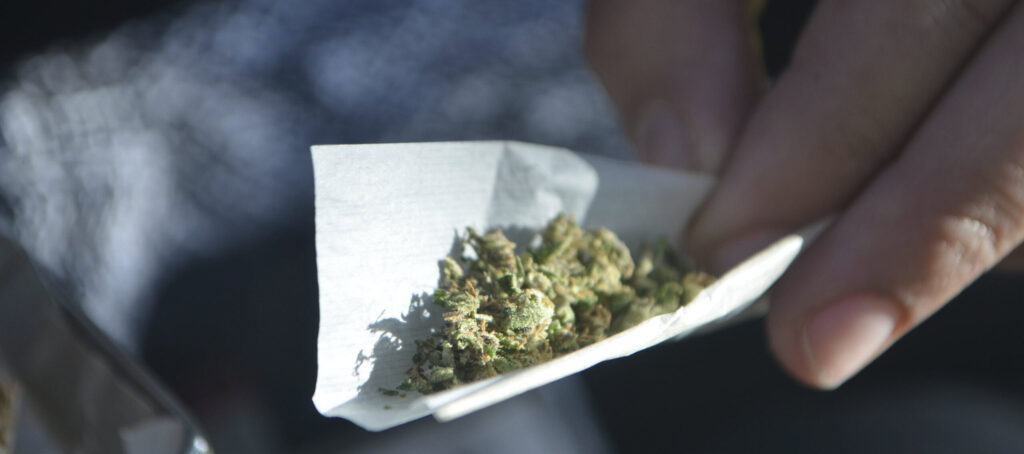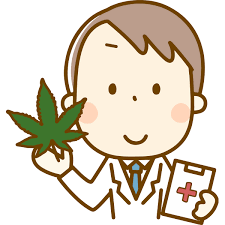There are numerous avenues to recovery for those whose lives have been negatively impacted by Marijuana abuse.
Treatment for Marijuana Addiction
Contents

Due to the ever-changing social environment surrounding marijuana, it can be difficult to tell if you have a problem and even more difficult to stop smoking. In the same way that alcohol is accepted, so too is Marijuana more recently and widely used; hence, the concept of quitting is complex. Despite the fact that many individuals who are dependent on or addicted to Marijuana may not believe they have a problem, they could benefit greatly from Marijuana addiction treatment.
There are many people who use marijuana regularly (such as for medical purposes when they have a doctor’s prescription) yet are not deemed to have an addiction because their use is controlled and managed. Those who cannot regulate their use and consumption, however, meet the diagnostic criteria for a substance use disorder or addiction.
Predominantly, those who receive treatment for a Marijuana addiction are everyday users of Marijuana. These are individuals who have repeatedly attempted to quit smoking on their own but have been unsuccessful. If this describes your situation, call a treatment professional immediately.
Treatment Facilities for Marijuana Dependence
Due to the substance’s less severe effects on the brain and body than “harder” substances, many people who develop a marijuana addiction are able to quit without entering a treatment facility. However, for people who are in a situation that makes it seem impossible to stop using marijuana, an inpatient treatment center may be able to aid by removing them from non-ideal environments and daily triggers.
Leaving Marijuana Behind

Despite the fact that marijuana may not be physically addictive in the same way that heroin or alcohol are, the psychological addiction can be strong. Behavioral diseases, such as gambling and pornographic addictions, are powerful examples of mental dependencies.
In 2020, around 14.2 million Americans aged 12 and older (5.1%) had a cannabis use disorder.
More people than ever before consider Marijuana acceptable or bearable. Marijuana is allowed for recreational use in 18 states (about 36 percent of the country) and for medical use in 36 states (72 percent of the country), resulting in widespread popular acceptance. A recent survey reveals that approximately 56% of Americans believe the substance is “socially acceptable;” 60% of Americans support legalizing marijuana in all forms, including for recreational use, while 83% of respondents feel medical usage should be permitted. Consequently, the majority of people do not feel that marijuana is an addictive chemical, despite the fact that its symptoms are less strong and manifest differently than those of “intensifier” drugs. When evaluating the consumption of yourself or a loved one, it is essential to have a thorough understanding of the symptoms, effects, and hazards. Misconceptions regarding marijuana’s addictive properties should not prevent those in need of therapy from receiving it.
Marijuana Detox And Withdrawal?
Some may be startled to learn that marijuana withdrawal symptoms exist; however, they are not as severe as those of other narcotics. The effects of marijuana withdrawal have been compared to those of nicotine withdrawal and caffeine withdrawal since withdrawal from either of these substances can:
- Enhance irritation
- Make anxious
- Make it tougher to sleep
- Induce desires
Other marijuana withdrawal symptoms include:
- Depression
- Restlessness
- Agitation
- Insomnia or severe weariness
- Decreased hunger or weight loss
- Mood swings
- Ongoing Recuperation
Therapy and support groups are the key treatment choices for individuals with a Marijuana dependence.
However, there are also those who receive inpatient treatment to jumpstart their recovery, knowing that the hands-on care and support will be advantageous to their continued recovery. Inpatient rehabilitation typically lasts between 30 and 90 days.

Many individuals receiving treatment for Marijuana addiction utilize behavioral therapy to address the psychological aspects of their dependency. Depending on the individual, behavioral treatment might run anywhere from four to twelve weeks. Behavioral therapy might help you better comprehend your addictions and motivations. This is an excellent strategy for combating cravings and relapses. With a predominantly psychological medicine like Marijuana, cognitive behavioral therapy and other therapeutic modalities are equally essential.
Support groups are one of the most common ways individuals receive assistance. There are numerous support groups available for those wishing to kick their addiction. Marijuana Anonymous (MA) is the most substance-specific addiction support group. This group is structured after Alcoholics Anonymous (AA) and includes a 12-step addiction recovery program. Since many towns do not offer MA, Narcotics Anonymous (NA) is a more accessible choice for those seeking recovery support.
Other support groups, such as the SMART Recovery ™ program, exist for those seeking alternatives to the 12-step approach.
Conquering Addiction
Everyone seeks assistance for a unique reason. It might be difficult to decide to receive treatment for marijuana addiction, especially when some believe it is unneeded. However, many individuals who wish to overcome an addiction cannot accomplish so on their own. Most importantly, realize that you can overcome this addiction. Contact a treatment professional immediately to discuss your alternatives for rehabilitation.
Top Treatment Locations
New York, NY
Los Angeles, CA
Dallas, TX
Philadelphia, PA
Houston, TX
Boston, MA
Seattle, WA
San Francisco, CA
San Diego, CA
Brooklyn, NY
Queens, NY
Riverside, CA
Baltimore, MD
Portland, OR
San Antonio, TX
Sacramento, CA
San Jose, CA
Cleveland, OH
Pittsburgh, PA
Austin, TX
Cincinnati, OH
Columbus, OH
Virginia Beach, VA
Bronx, NY
Providence, RI
Richmond, VA
Bridgeport, CT
Buffalo, NY
Fort Worth, TX
Hartford, CT
El Paso, TX
McAllen, TX
Dayton, OH
Rochester, NY
Fresno, CA
Allentown, PA
Concord, CA
Springfield, MA
Mission Viejo, CA
Albany, NY
Bakersfield, CA
Akron, OH
New Haven, CT
Worcester, MA
Murrieta, CA
Toledo, OH
Staten Island, NY
Long Beach, CA
Denton, TX
Harrisburg, PA
Oakland, CA
Indio, CA
Spokane, WA
Syracuse, NY
Lancaster, PA
Arlington, TX
Stockton, CA
Poughkeepsie, NY
Oxnard, CA
Scranton, PA
Modesto, CA
Youngstown, OH
Anaheim, CA
Victorville, CA
Lancaster, CA
Corpus Christi, TX
Santa Ana, CA
Santa Rosa, CA
Santa Clarita, CA
Antioch, CA
Trenton, NJ
Plano, TX
Irvine, CA
Newark, NJ
Chula Vista, CA
Eugene, OR
Canton, OH
Lubbock, TX
Reading, PA
Salem, OR
Laredo, TX
Jersey City, NJ
McKinney, TX
Killeen, TX
Chesapeake, VA
Norfolk, VA
Fremont, CA
Kennewick, WA
Garland, TX
Irving, TX
Helpful Resources about Dual Diagnosis Treatment Centers: Mission Viejo CA, San Diego, CA, Austin, TX
Relevant Resources about Drug and Alcohol Rehabs: Corpus Christi, TX

